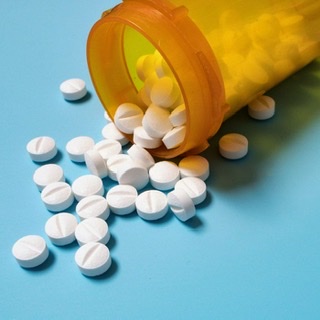
BARBITURATES (Sedative-hypnotic)
They are white, crystalline, odorless powders, with a faintly bitter taste.
Pharmacological Action:
They have a depressant action on the central nervous system. Large doses directly depress the medullary respiratory centre.
Ref Internet
Barbiturates are a group of drugs in the class of drugs known as sedative-hypnotics, which generally describes their sleep-inducing and anxiety-decreasing effects.
Acts on GABA receptors
CLASSIFICATION:
|
Types |
Long-acting |
Intermediate-acting |
Short acting |
Ultra-short acting |
|
Examples |
Barbitone (barbital) Phenobarbitone (Phenobarbital) Methyl phenobarbitone (Methyl phenibarbital) (Mephobarbital) |
Amobarbitone (Amobarbital) Butobarbitone (Butobarbital) Probarbitone (Probarbital)
|
Cyclobarbital, Pentobarbital Seconal (Secobarbital)
|
Pentothal sodium (Na Thiopental) Kemithal sodium, Thiamylal sodium. |
|
Onset of action |
2 hours |
Half to 1 hour |
|
Immediate |
|
Duration of action |
6 - 12 hours |
3-6 hours |
Less than 3 hours |
5-10 min |
|
Fatal Dose |
3-5 gm |
2-3 gm |
1-2 gm |
|
|
Lethal Dose |
10 mg/dl |
7 mg/dl |
3 mg/dl |
|
|
Fatal Period |
1-2 days |
1-2 days |
1-2 days |
1-2 days |
ABSORPTION, Distribution and Elimination:
They are rapidly absorbed from the gastrointestinal tract including the rectum, and from the subcutaneous tissues. They are concentrated in the liver for a short time, and then evenly distributed in the body fluids. They are partly destroyed in liver and excreted in urine. Barbiturates, alcohol and CO produce irreversible brain damage and yet the patient survives for a sufficiently long period so that they are completely metabolized or excreted before death occurs.
Signs and Symptoms
CNS
Drowsiness (1st symptom)
Delirium
Confusion
Excitement
Hallucinations
CVS
There is a fall in cardiac output and an increase in capillary permeability leading to an increase in the extracellular fluid.
Mild but progressive cardiovascular collapse, evidenced by cyanosis, hypotension, weak rapid pulse, and cold clammy skin occurs.
Respiratory
Respirations may be rapid and shallow or slow and labored, but the minute volume is always reduced.
Renal
Oliguria
Acute Renal Failure
Skin
Hypothermia
Blisters on the skin, often on an area of erythema, strongly suggest barbiturate poisoning. Blisters contain clear serous fluid.
Treatment (Ref Reddy)
1) Gastric lavage should be carried out (up to 8 to 24 hours post-ingestion), with warm water mixed with potassium permanganate and suspension of activated charcoal or tannic acid. A concentrated solution of magnesium sulphate should be left in the stomach to produce purgation and minimize intestinal absorption.
2) Maintenance of patent airway, and adequate respiratory support.
Mucus removed from the throat either by raising the foot of the bed or by aspiration.
Artificial respiration and oxygen is given.
Antibiotics to minimize risk of pneumonia.
3) Uses anti-shock measures
Fluid replacement therapy should be used & not vasopressors (dopamine or noradrenaline)
If shock persists, Noradrenaline 2 mg diluted with 500 ml of 5% glucose in saline i.v. to counteract shock and low blood pressure.
4) Normal saline with five percent glucose i.v. increases the rate of excretion. 2.5-3 L should be given in 24 hours.
5) Forced alkaline diuresis is most useful in poisoning by barbiturate
6) Hemodialysis and exchange transfusion are sometimes life-saving.
7) Bowels should be evacuated by enema.
8) The patient should be kept warm
9) Symptomatic treatment
Death may occur from respiratory failure or ventricular fibrillation in early stages, and bronchopneumonia or irreversible anoxia with pulmonary edema in the later stages
Postmortem findings of Acute Barbiturate Poisoning
External Finding
Cyanosis
Congested face
Prominent postmortem staining
Internal Finding
1. Stomach: Mucus membrane is congested. Parts of tablets may be still present
2. Lungs: Congested, edematous with presence of hemorrhagic spots under the surface.
3. Kidneys: May show tubular degeneration
4. Brain: Congested, edematous
5. All others organs are congested
Medicolegal importance
Mostly suicidal or accidental
Capital punishment by lethal injection (Na thiopental)
Barbiturate Automatism (Ref Lecture)
Taking barbiturates tablets repeatedly to get sleep out of mental confusion, pain.

Comments (0)